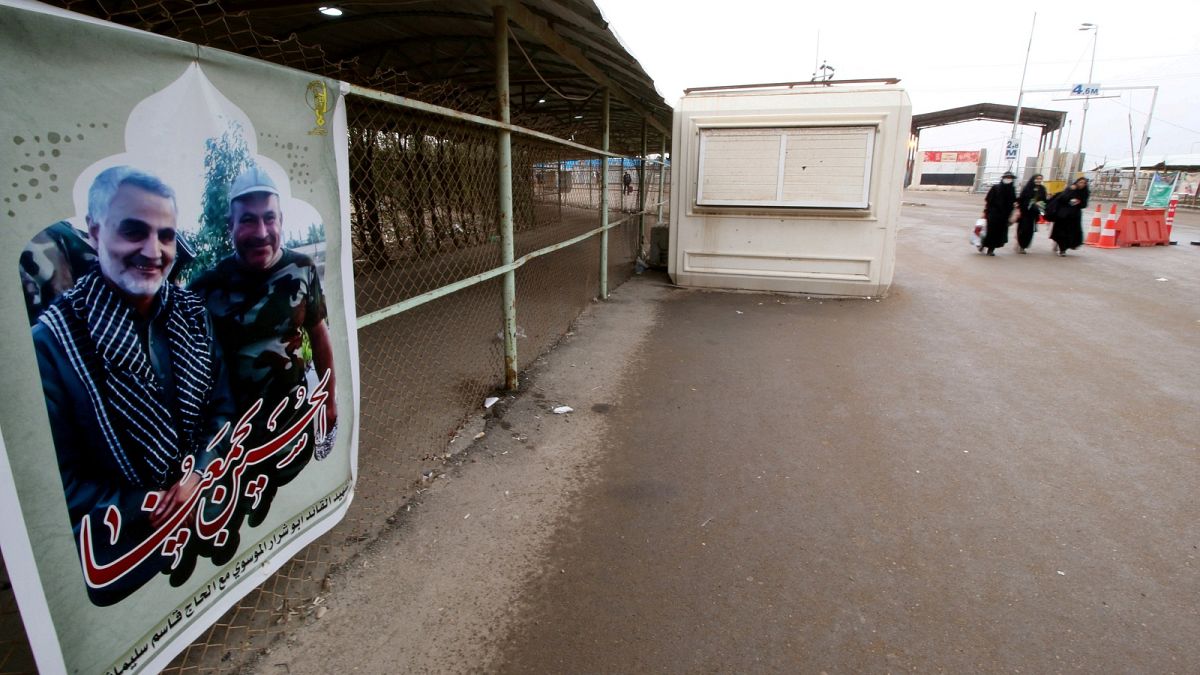Calling the Quds Force what it is - a terrorist organisation - would be a powerful step towards holding Iran accountable for its actions on the world stage.
Last week, the US announced that it will designate the Iranian Revolutionary Guards Corps (IRGC) as a terrorist organisation. Noting that the IRGC “actively participates in, finances, and promotes terrorism as a tool of statecraft,” the White House has signalled it is now going to take a tougher stance on Iran’s use of proxies abroad.
This move met mixed reactions from certain quarters, both in the US and internationally. Critics of the move fear that it may invite violent reprisals against troops stationed in the Middle East. Iran has already retaliated by designating US troops in the region as terrorists. In addition, there are fears that it may complicate pursuing diplomatic options with the Iranian regime in the future.
While these points have merit, they do not escape the fact that the global community needs to take a firmer stance against the IRGC’s support for terrorism. While European governments may hesitate to go as far as the US is designating the entire IRGC as a terrorist organisation, it is past time for them to act on the blatant aggression of the organisation.
Established in 1979 and officially tasked with preserving the Islamic Republic of Iran and the ideals of the Revolution, the IRGC has a wide-ranging and ambiguous mandate, playing a part military, part police and part intelligence role in the country.
Separate from the conventional police force and military, its focus is both international and domestic. The IRGC is Iran’s primary instrument for exporting the ideology of the Islamic Revolution worldwide and countering threats from abroad, but it also has a relentless focus on suppressing supposed enemies within Iran.
Within the IRGC organisation, the grouping called the Quds Force should be highlighted. This special forces unit is known for its foreign activities, in particular for providing training, funding and weapons to extremist groups; including Iraqi insurgents, Hezbollah and Hamas. It also plays a key role in support of Syrian regime forces in that country’s civil war.
Throughout the course of the conflict in Syria, the Quds Force has evolved and expanded its scope of activities. By supporting Shiite militants in Syria, it played a pivotal role in ensuring the survival of the Assad regime. Working with operatives from Russia, Iranian-backed militants successfully defied the wishes of Western powers, allowing government forces to brutally assert their dominance over the country.
This victory has emboldened the organisation, which has begun to expand its range of activities abroad. Traditionally known for supporting Shiite groups, it was revealed last year that the Quds Force was providing finance, training and weapons to the Taliban in Afghanistan. The Taliban - a Sunni group - is one of the most notorious and dangerous terrorist groups in the world. Their support signals a worrying new development in Quds Force’s modus operandi.
Through these activities, the Quds Force has evolved into an organisation with a wider global reach than Islamic State, supporting and funding some of the most dangerous extremist groups on the planet. By any definition, it is a terrorist organisation, one which is becoming more assertive, aggressive and daring.
The Quds Force is deeply enmeshed in the wider IRGC infrastructure, and the IRGC remains ultimately responsible for its subgroup’s terrorist activities. However, the concerns raised about proscribing the IRGC as a whole are legitimate. Labelling an organisation so deeply embedded in the Iranian political apparatus may potentially create serious barriers to dealing with the regime in the future.
Targeting the Quds Force alone, however, avoids many of these pitfalls, while achieving the objective of taking a stand against Iranian support for terrorist groups overseas. Iran’s state-sponsored terrorism poses a great threat to the global community, and hence requires an international response.
The US has made an important move by labelling the threat and addressing it by name, but more nuance and detail is required. European governments and the wider international community should take note of the Quds Force’s operations and respond accordingly. Calling the Quds Force what it is - a terrorist organisation - would be a powerful step towards holding Iran accountable for its actions on the world stage.
Giulio Terzi di Sant'Agata is a former foreign minister of Italy, former Italian Ambassador to the United States, former Permanent Representative of Italy to the United Nations and a member of the Advisory Board of United Against Nuclear Iran (UANI)
